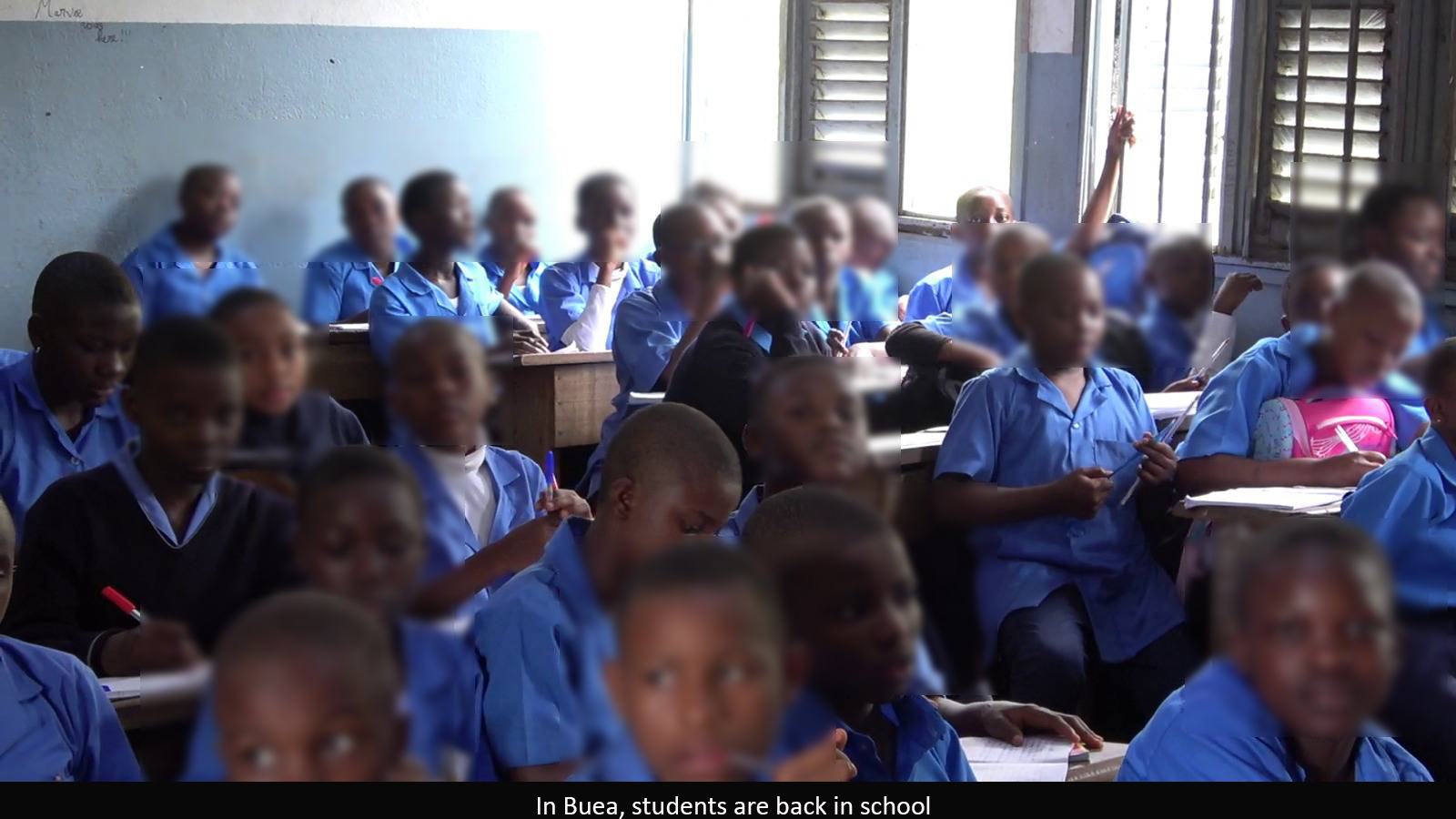Anglophone crisis: students return to school in Buea

Election Boycott Extends 37-Day School Resumption Delay in Cameroon’s Anglophone Regions
A separatist-imposed lockdown has delayed school resumption in Cameroon’s North West and South West regions by 37 days, marking one of the longest shutdowns linked to the 9-year Anglophone crisis. The disruption followed a call by separatists to boycott the October 12, 2025 Presidential Election, in a bid to frustrate citizen participation in the polls.
The lockdown, which affected all 13 divisions of the two regions, kept thousands of learners at home long after the official nationwide school reopening on September 8, 2025. This forced many institutions to adjust their calendars to salvage the 2025/2026 academic year.
At the Catholic University Institute of Buea Entrepreneurial High School, students, parents, and teachers returned to campus with visible relief and excitement. “We lost more than five weeks of classes, but our students are eager to catch up,” the principal, Rev. Fr Pascal Siben told DataCameroon.
To bridge the academic gap, the administration has introduced extra lessons, Saturday classes, and online teaching via WhatsApp to sustain learning momentum. Plans to integrate Google Classroom were put on hold due to limited teacher training on the platform.
A similar recovery plan is underway at Bilingual Grammar School Molyko Buea, where Saturday classes have been made compulsory for exam classes despite ministerial instructions discouraging weekend lessons. “We can’t afford to compromise academic performance. If it takes extra hours, we’ll do it,” the principal Lyonga Cecilia said.
Technology is also playing a growing role in these catch-up strategies. Both schools are using AI-generated lessons and online assignments to reinforce classroom teaching. Daily schedules now run from 8:00 a.m. to 3:30 p.m., with weekend lessons added to make up for lost time.
This disruption is not new. Since the crisis erupted in late 2016, schools across the Anglophone regions have faced recurrent lockdowns, affecting tens of thousands of learners annually. However, education stakeholders say this year’s delay stands out because of its direct link to the presidential election.
“I’m just happy to be back in school after staying home for weeks,” said a Form Five student, smiling. “Even if it means coming on Saturdays, I’m ready to work hard.”
As recovery efforts intensify, administrators remain confident that with discipline, focus, and determination, students can still meet their academic goals despite the extended shutdown.
Jude MBAKU







